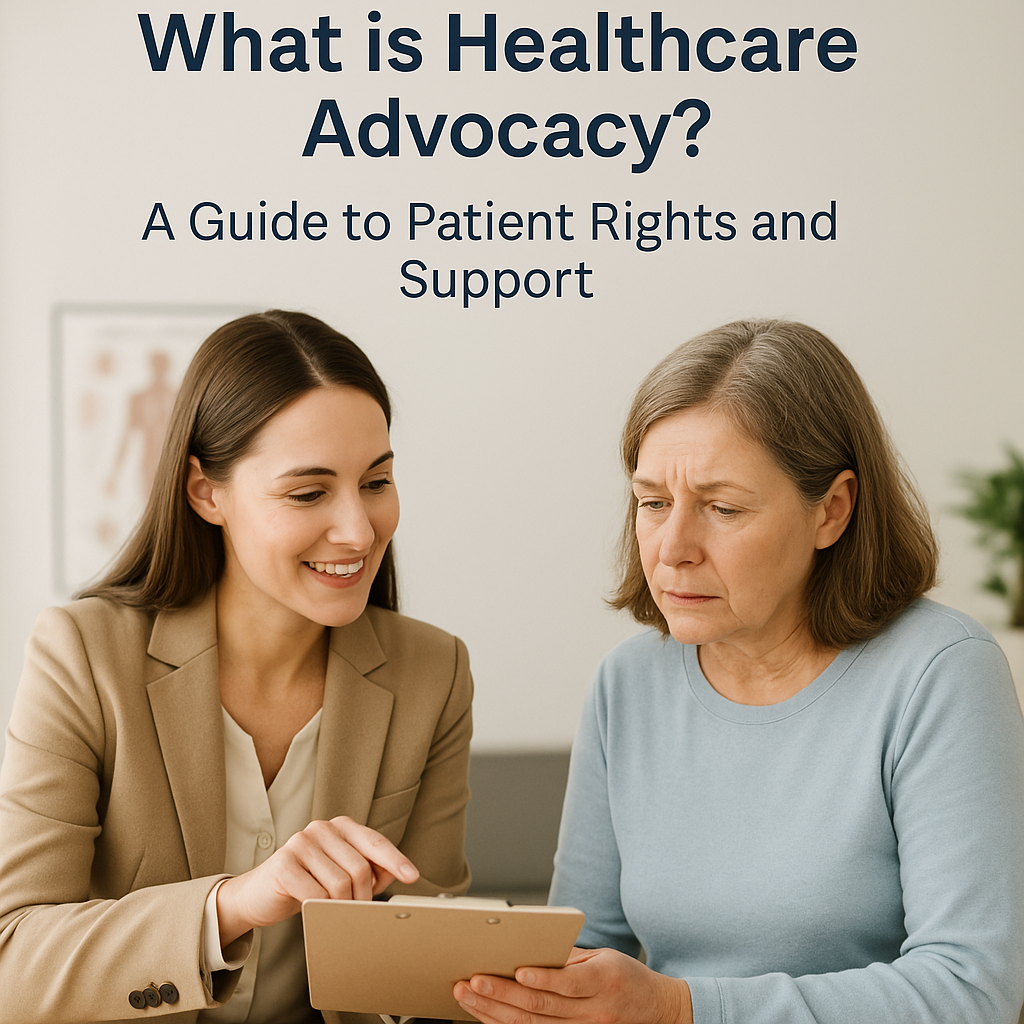%201.svg)
%201.svg)


Imagine sitting in a doctor’s office, overwhelmed by medical jargon, unsure of what questions to ask, or frustrated with a never-ending insurance dispute. If you’ve ever felt lost in the healthcare system, you’re not alone. This is where healthcare advocacy comes in—a vital support system that helps patients navigate the often confusing and stressful world of medical care.
In this guide, we’ll explore what healthcare advocacy means, why it matters, and how you can ensure you or your loved ones get the care and respect you deserve.
At its core, healthcare advocacy is about ensuring patients receive the best possible care while understanding their rights and options. It involves speaking up for yourself or someone else when dealing with doctors, hospitals, insurance companies, and other healthcare providers. Whether it’s a professional advocate, a caring family member, or even yourself taking charge, advocacy plays a crucial role in patient care.
In a perfect world, healthcare would be simple, transparent, and fair for everyone. But the reality is that many patients struggle with miscommunication, rushed appointments, denied insurance claims, and complex medical decisions. Healthcare advocacy helps bridge these gaps, making sure patients are heard, informed, and supported.
Healthcare can be intimidating. Many people walk out of doctor’s appointments feeling more confused than when they walked in. They may not fully understand their diagnosis, treatment options, or the financial implications of their care. This uncertainty can lead to stress, poor decision-making, and even negative health outcomes.
Here’s why healthcare advocacy is so important:
Doctors and medical professionals work hard to provide the best care, but the system is often fast-paced. An advocate ensures that patients’ concerns, symptoms, and preferences are communicated clearly and taken seriously.
Did you know that you have the right to get a second opinion? Or that you can request access to your own medical records? Many people aren’t aware of their rights as patients, and advocates help ensure they aren’t taken advantage of.
Medical mistakes happen more often than we’d like to think. Whether it’s a prescription mix-up or a misdiagnosis, an advocate helps double-check medical records and ensure that everything is accurate and in the patient’s best interest.
One of the biggest headaches in healthcare is dealing with insurance claims and surprise medical bills. Advocates can help dispute incorrect charges, understand insurance coverage, and negotiate costs on behalf of the patient.
A serious diagnosis can turn a person’s world upside down. During these moments, having someone by your side to ask the tough questions, take notes, and provide emotional support can make all the difference.
If you or a loved one need help navigating the healthcare system, here’s where to start:
Even if you don’t have a dedicated advocate, you can take steps to stand up for yourself in healthcare situations:
Navigating the healthcare system can be tough, but you don’t have to do it alone. Healthcare advocacy is about ensuring that every patient receives fair, informed, and compassionate care. Whether you find an advocate or become one for yourself, knowing your rights and options is the first step toward better healthcare experiences.
If you’ve ever felt unheard by a doctor, confused by a diagnosis, or frustrated with an insurance claim, remember this: You have the right to ask questions, seek help, and make the best decisions for your health. And that’s what healthcare advocacy is all about.


